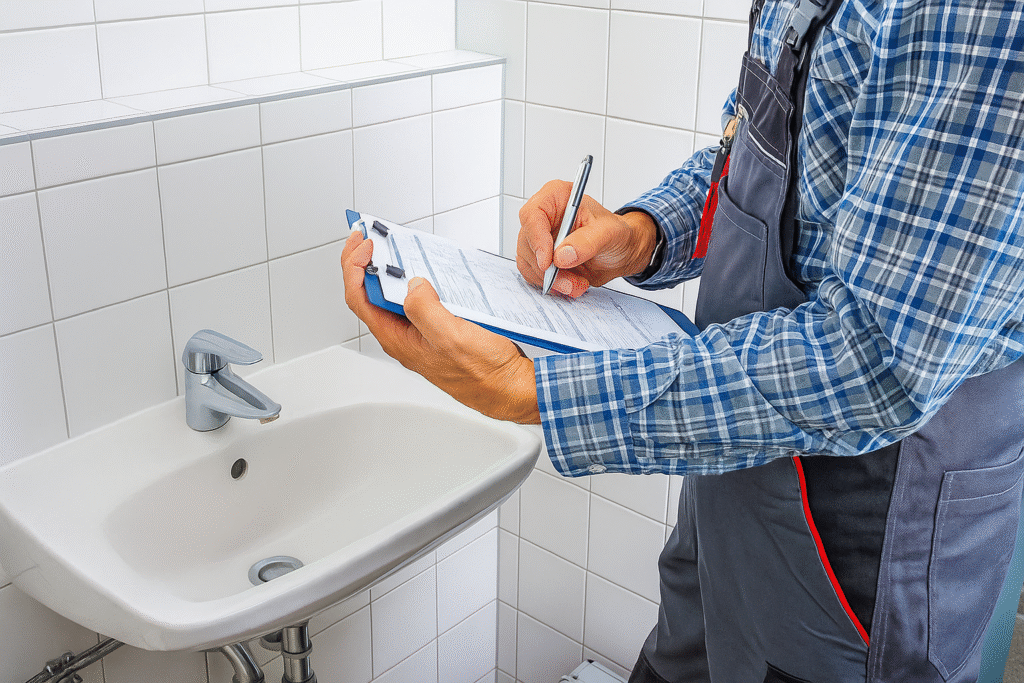
Running a plumbing business takes more than fixing leaks or installing pipes. Behind the scenes, strong financial management plays a huge role in keeping everything running smoothly. When handled well, accounting helps you stay on top of expenses, manage cash flow, and make smarter decisions that support long-term growth.
In this article, we’ll explore why financial organization is essential for plumbing companies, how it improves profitability, and practical steps to keep your business financially healthy.
Why Financial Management Matters
Many plumbing businesses are started by skilled tradespeople who know their craft inside and out. But running a business also means tracking income, paying bills, and preparing for taxes. Without a clear financial system, it’s easy to lose track of money, undercharge for work, or run into cash shortages.
Good bookkeeping ensures:
- A clear view of business performance
- Fewer surprises at tax time
- Smarter decisions about pricing and staffing
- A stronger foundation for long-term growth
Tracking Income and Expenses
One of the most important habits is recording every transaction. Plumbers often deal with fluctuating schedules, multiple jobs in a day, and varied material costs.
To stay organized, it helps to:
- Record all service jobs and payments
- Keep receipts for supplies, fuel, and tools
- Separate personal and business accounts
- Categorize expenses to see where money goes
With accurate tracking, it’s easier to spot patterns—like high material costs or rising fuel expenses—and make changes to protect profits.
Understanding Job Costs
Not all projects bring the same return. Some require minimal parts and labor, while others involve costly equipment and days of work. That’s where job costing becomes essential.
By breaking down labor hours, materials, and overhead for each project, you can see whether you’re charging the right amount. For example:
- A quick pipe repair may only cost a few dollars in parts and one hour of labor.
- A bathroom remodel could involve thousands in supplies, subcontractor fees, and weeks of time
Knowing the true cost of each job helps you set fair prices and avoid losing money on larger projects.
Keeping Cash Flow Steady
Even profitable businesses can run into trouble if payments don’t come in on time. Plumbing work often requires paying for parts and labor upfront, while customer payments may arrive weeks later.
To avoid cash crunches:
- Send invoices immediately after completing work
- Offer digital payment options for faster turnaround
- Follow up on overdue bills regularly
- Keep a small reserve for slow seasons
A steady cash flow means you can cover payroll, pay suppliers, and still have breathing room for emergencies.
Staying on Top of Taxes
Tax compliance is another area where plumbers can easily fall behind. Between handling service calls and running the business, paperwork often gets pushed aside. Unfortunately, late filings or missed deductions can lead to costly penalties.
Some smart practices include:
- Saving a portion of income each month for taxes
- Keeping digital copies of receipts
- Claiming deductions for equipment, mileage, uniforms, and training
- Consulting with a CPA familiar with trade businesses
Proper planning reduces stress and ensures you’re only paying what’s required.
Using Technology to Save Time
Accounting no longer has to mean piles of receipts and paper ledgers. Today’s software makes financial management much easier. Tools like QuickBooks, Jobber, or Xero can:
- Generate invoices on the spot
- Track expenses automatically
- Handle payroll efficiently
- Provide reports on business performance
These solutions save time, cut down on errors, and let you focus more on growing your plumbing business instead of drowning in paperwork.
Preparing for Growth
As your business expands, financial planning becomes even more important. Hiring staff, upgrading equipment, or opening new service areas all require clear insight into your finances.
Some growth-focused steps include:
- Reviewing financial reports each month
- Creating budgets for upcoming projects
- Comparing year-over-year performance
- Planning ahead for busy and slow seasons
With strong systems in place, you’ll be ready to take on new opportunities without overextending your resources.
Conclusion
Running a plumbing company isn’t just about technical skills—it’s also about managing money wisely. Good financial practices like expense tracking, job costing, and cash flow management make the difference between just getting by and building a business that thrives.
When you invest in proper accounting for plumbers, you create stability today and open the door for growth tomorrow.






